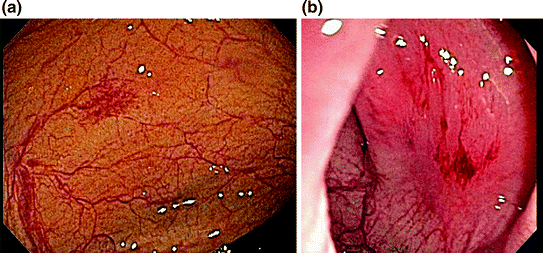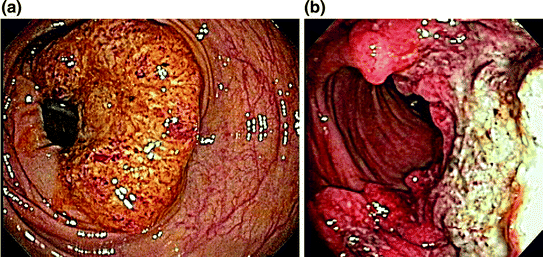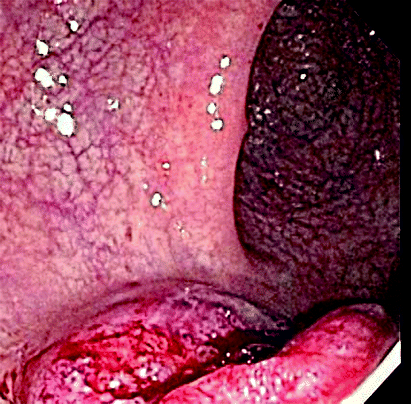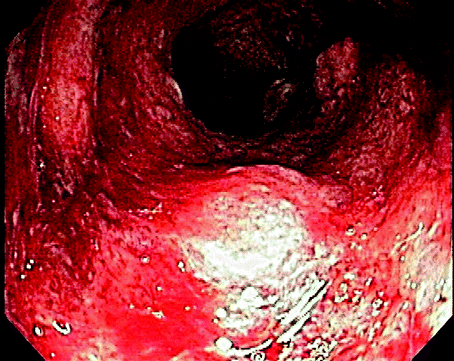Fig. 9.1
Small bowel AVM seen on mesenteric angiography. © Dale Dangleben, MD

Fig. 9.2
a, b Endoscopic view of AV malformation. © Dale Dangleben, MD

Fig. 9.3
a, b Colon adenocarcinoma. © Dale Dangleben, MD

Fig. 9.4
Bleeding rectal carcinoma. © Dale Dangleben, MD
Differential Diagnosis
When attempting to diagnose a lower GI bleed, it is always essential to rule out an upper GI source as the cause. Assessment of patient risk factors and nasogastric tube lavage can assist with this differential (see upper GI chapter). Etiologies of true lower GI bleeds can be difficult to differentiate base on history and physical examination alone. One must always consider whether the process is benign, infectious, or potentially malignant.
Diagnosis
As always, a comprehensive history and physical examination should be conducted if possible. In particular, attention to history of GI bleeds, diverticular disease, and inflammatory or infectious bowel disease may provide some insight. Additionally, endoscopic and abdominal surgical history should be obtained. On examination, attention should be given to the overall appearance of the patient as well as the abdominal exam. Presence of bright red blood on digital rectal exam is highly suspicious for a lower GI source unless there is a brisk upper GI source. Rectal exam also may help rule out an anorectal etiology. Nasogastric tube lavage can aid in identifying an upper GI source.
Iatrogenic causes and benign rectal diseasessis but also has a potentially therapeutic benefit as well (Fig. 9.5). CT scan angiography, traditional angiography, and abdominal scintigraphy with radiolabeled red blood cells can also be utilized in the appropriate clinical settings if available although the latter is sensitive at lower bleeding rates but can frequently make precise localization challenging.










